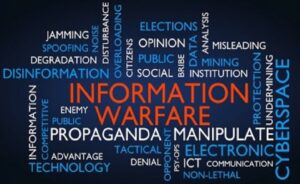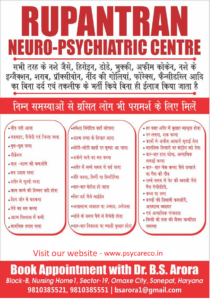
Information warfare is a growing concern in India, as false and misleading information is increasingly being spread online to influence public opinion and disrupt national security.
To effectively counter information warfare, it is important to understand the tactics used by those who engage in it, as well as the impact it can have on society.
One of the key tactics used in information warfare is the spread of false and misleading information. This can take many forms, including fake news stories, manipulated photos and videos, and false claims made by individuals or groups.
To counter this tactic, it is important to educate the public about how to identify false information, and to encourage them to seek out credible sources of information.
Another tactic used in information warfare is the use of social media platforms and instant messaging apps to reach large numbers of people in a short period of time.
To counter this, it is important for authorities to monitor these platforms for instances of false information, and to work with the companies behind these platforms to remove false information when it is detected.
In addition to educating the public and monitoring social media platforms, there are several other steps that can be taken to counter information warfare in India. For example, the government can establish a rapid-response task force to address instances of false information as they occur. This task force can be responsible for investigating the source of false information, identifying the individuals or groups behind it, and taking appropriate action to stop its spread.
Another way to counter information warfare is to work with the media to promote accurate and credible information. This can include providing training for journalists on how to identify and report on false information, as well as encouraging media organizations to adopt policies and guidelines for reporting on false information.
Finally, it is important for individuals and organizations to take personal responsibility for their online behavior. This includes being mindful of the information they share and the sources they trust, as well as being vigilant about the information they receive and its potential impact on society.
By doing so, individuals and organizations can help to create a more informed and engaged public, and reduce the impact of information warfare on India.
In conclusion, information warfare is a growing concern in India, and it is important to take steps to counter its effects. This includes educating the public about false information, monitoring social media platforms, establishing rapid-response task forces, working with the media to promote accurate information, and encouraging individuals and organizations to take personal responsibility for their online behavior. By taking these steps, India can effectively counter information warfare and ensure a more secure and stable future.
By Dr .B.S.Arora
Psychiatrist
